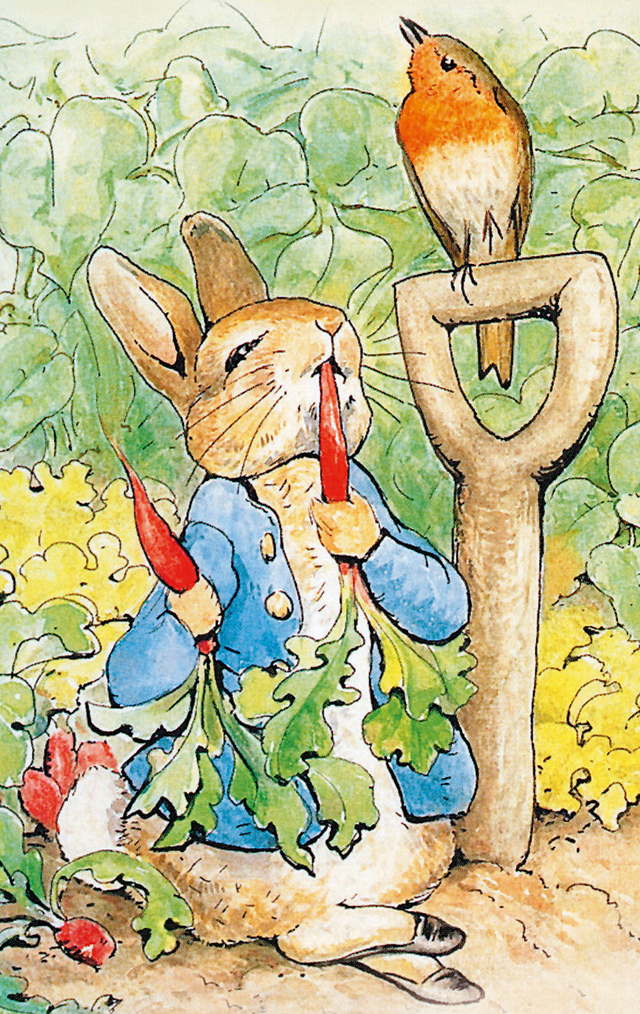The redoubtable actress Patricia Routledge talks to Country Life about being a presenter, unacceptable mannerisms and turning down Alan Bennett.
Beatrix Potter was fond of mice, befriending the nocturnal visitors to her childhood bedroom. Earlier this year, in a television documentary marking the 150th anniversary of the writer’s birth, Patricia Routledge was seen peering under a bed as Mus musculus nibbled away in a blood-curdling close-up.
Does this mean the distinguished actress shares her heroine’s rodent fascination? ‘Not particularly,’ she replies, weakly. ‘But I just got on with it. There is one scene where a mouse was in the palm of my hand and, of course, he left his calling card.’
Miss Routledge, whose looks and mind belie her 87 years, shared the screen with more obvious élan at other points in the programme with a rabbit, a hedgehog, a parrot and Potter’s famous grey Herdwick sheep. Despite a diverse professional career that began with her playing Hippolyta in A Midsummer Night’s Dream at the Liverpool Playhouse in 1952, she admits to being very nervous about her presenter’s role. ‘It’s the first time I’ve ever been a presenter, an entirely different exercise from hiding behind a character. There’s a kind of nakedness about it.’
Needless to say, she carried off The Tale of Beatrix Potter with style. Working with producer-director Ian Denyer to shape the script to allow her own voice to come through, she now looks back on the experience as one of the happiest of her career. ‘I’m proud to say we were nominated for a Royal Television Society award, although, in the end, the prize went to a pastry maker from Doncaster. Well, cooking a sausage is considered an artform now, isn’t it?’
Miss Routledge’s interest in Beatrix Potter first stirred when she played her on stage in 1997. ‘It sounds bit high falutin’, but, such was her personality, she took over and I’ve been fascinated by her ever since.’

As well as the exquisite, self-illustrated books, which still sell more than a million a year, and scientific endeavours that included a paper on mycology, Miss Routledge points to Potter’s pioneering conservationism. ‘It’s due to her and one or two others, such as the Anglican priest Canon Rawnsley, that the Lake District is still as unspoilt as it is today and she helped plant the seeds of what became the National Trust.’
If Potter was a Londoner who adopted Cumbria, Miss Routledge has done the reverse, as a northerner who moved south. Born in Birkenhead, Cheshire, she’s lived in Chichester, West Sussex, within walking distance of the Festival Theatre for the past 20 years. ‘I’ve had a connection with the place since 1969, when I first came to here to play opposite one of my idols, Alastair Sim.’ She’s appeared at the theatre in every decade since.
So familiar and admired is Miss Routledge that several people wander up during the course of our interview in the theatre restaurant. She’s not one for inane small talk, however, or sloppy expressions. When I lazily, but truthfully, say how much I loved Alastair Sim’s ‘stuff’, she looks visibly pained—I’m not at all surprised her Lady Bracknell was highly acclaimed—but she has a natural wit and I can see why Alan Bennett wrote specifically for her.
“What’s alarming is the presumption that we can’t concentrate for very long, not even for a scene of more than 20 lines.”
She agrees that some of her most satisfying performances came in his Talking Heads monologues. Bennett had to do some wooing, however. ‘After he’d asked me to appear in a play I didn’t want to do, he wrote me a note saying “Please reconsider; I will walk barefoot to Jerusalem if only you will change your mind”,’ she recalls. ‘Well, I didn’t and I thought “That’s it now”.’ Luckily, it wasn’t and her A Lady of Letters monologue in 1988 was nominated for a BAFTA.
Miss Routledge must be an immensely self-assured artist, I suggest, to turn down a dramatist like Mr Bennett. ‘I just know what I want to burn my energy on,’ she responds. ‘It’s all-absorbing doing a play of any kind, particularly a monologue. It rules your mind for a certain amount of time.’
The restraint and economy of Talking Heads and the likes of Miss Pym’s Day Out, made in 1992, in which she played the novelist Barbara Pym, seems lost on current television producers, we agree. ‘It’s all so busy and restless now. What’s alarming is the presumption that we can’t concentrate for very long, not even for a scene of more than 20 lines.’
The decline of the sitcom is also regrettable, with many of today’s performers seemingly unable to deliver a line without signposting the humour with strange facial tics. ‘Trust the audience and trust the material,’ advises the lady who immortalised the shameless social climber Hyacinth Bucket in Keeping Up Appearances (1990–95).
‘Mannerisms are dictating to the audience. Unacceptable! Growing up in the North in the 1930s and 1940s, music hall was still going strong,’ she adds. ‘I was taken to see the greats, such as Frank Randle, Norman Evans and Robb Wilton. These people had taken 30 years perfecting their act. Music hall was a great test—it was one-to-one with the audience, you see.’
Miss Routledge is not an easy person to talk to, refusing to countenance answering questions about ‘favourite things’, but I imagine she’s set the bar high for herself, as much as for everyone else. ‘I don’t have professional ambitions. Just to do good work with good people,’ says this singular actress.
As someone who agonised for a year in the early 1950s over ‘whether I dare take the plunge and go on the wicked stage’, Miss Routledge has surely long surpassed her initial hopes and expectations.
– – –
Interview by Jack Watkins




